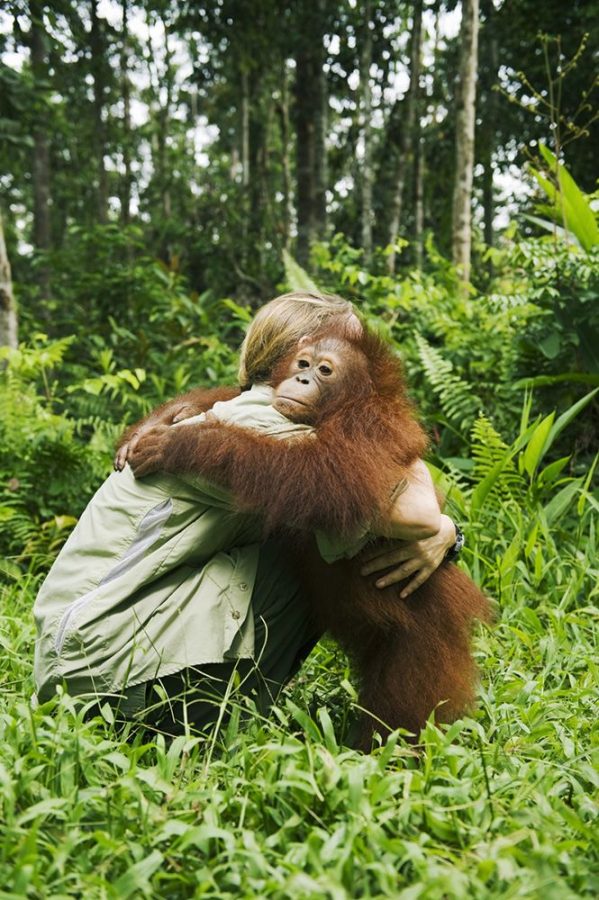Eco-Anxiety Can Take a Heavy Mental Toll
Eco-anxiety is a term used to describe a branch of anxiety that is specifically caused by worries related to climate change. This anxiety has become more common as additional numbers of people struggle to fully understand and deal with the implications of climate change. A 2020 poll that the American Psychiatric Association (APA) conducted has shown “more than half of respondents were somewhat or extremely anxious about the effects of climate change on their own mental health.” Individuals feel helpless in tackling the enormous problem of climate change which brings about anxiety when thinking about the topic. Therapists and other mental health professionals are beginning to recognize the importance of the conversation around eco-anxiety and are looking into more ways to treat it.
The complexity of anxiety regarding climate change lies in how it is a reasonable and natural response to a threatening issue. Although eco-anxiety might be rational, “there’s no clear, standard definition as to when eco-anxiety is unhealthy, if it ever is.” Due to these blurred lines and the lack of regulations regarding treatment of eco-anxiety, therapists can struggle with how to treat clients with eco-anxiety which can cause them to “pathologize their clients’ anxiety, or treat it as an unhealthy response.” Oftentimes, this is due to a therapist’s overlooking of their own eco-anxiety rather than out of a lack of concern or empathy for climate change.
Worry and anxiety about the climate crisis is on the rise. A 2020 survey from the Yale Program on Climate Change Communication, from 2009 and 2020, stated the “Americans who said they had personally experienced the effects of global warming increased from 32% to 42%.” Although we might limit climate change, it’ll still take some time for those effects to fully show, revealing a need for more focus on eco-anxiety and treatment for it. Current treatments for eco-anxiety range from mindfulness-based techniques to cognitive behavior therapy or more time spent with nature and with activism. It is also important to focus on positive stories about the environment. Understanding the full extent of the effects of climate change is necessary, solely focusing on the damage all the time can make people depressed and lose hope in their efforts to reduce climate change.
Some positive stories to look forward to include the repair of the Earth’s ozone layer. Due to international effort, a UN assessment has found that the ozone layer “is set to be completely healed over most of the world within two decades following decisive action taken by governments to phase out ozone-depleting substances.” The report states that the ozone layer will be healed by 2040 with the polar regions taking until 2045 for the Arctic and 2066 for the Antarctic. Progress towards repairing the ozone layer hasn’t been completely linear in the past and other approaches to mending it such as solar geoengineering are still being evaluated, but news of its repair has given people hope that beneficial environmental changes can be effective.
When reporting climate change, it is important to be accurate, but the media should also “show that there is hope” and combat “climate doom.” A lot of anxiety about the climate crisis comes from a detachment to it, a thought that it is almost impossible to overcome it. By hearing positive stories about fighting climate change, people can better understand that their efforts can make a difference and that climate change is not an impossible problem to eliminate. Anxiety is a natural response to the environmental crises that we are having right now, but it is important to make it easier for people to not further that worry into something more debilitating.
I’ve experienced anxiety about the environment before, but I always make sure to occasionally take a break from news on climate change that might make me anxious. It has also been helpful for me to focus on positive news stories about different approaches and efforts being taken by people to combat climate change. It can be very stressful to think about climate change and how large of a problem it is, but it is important to step back from time to time so you don’t burn yourself out.
Saisha Islam, FCRH ’25, is a biology major from New York, N.Y.

Saisha Islam is a senior from the Bronx, N.Y., who is majoring in biological sciences and minoring in English. She first joined The Fordham Ram as a contributing...










































































































































































































